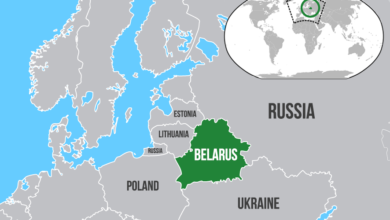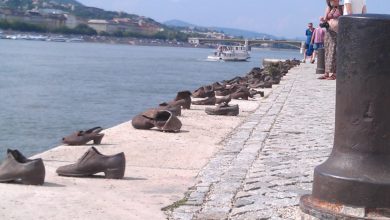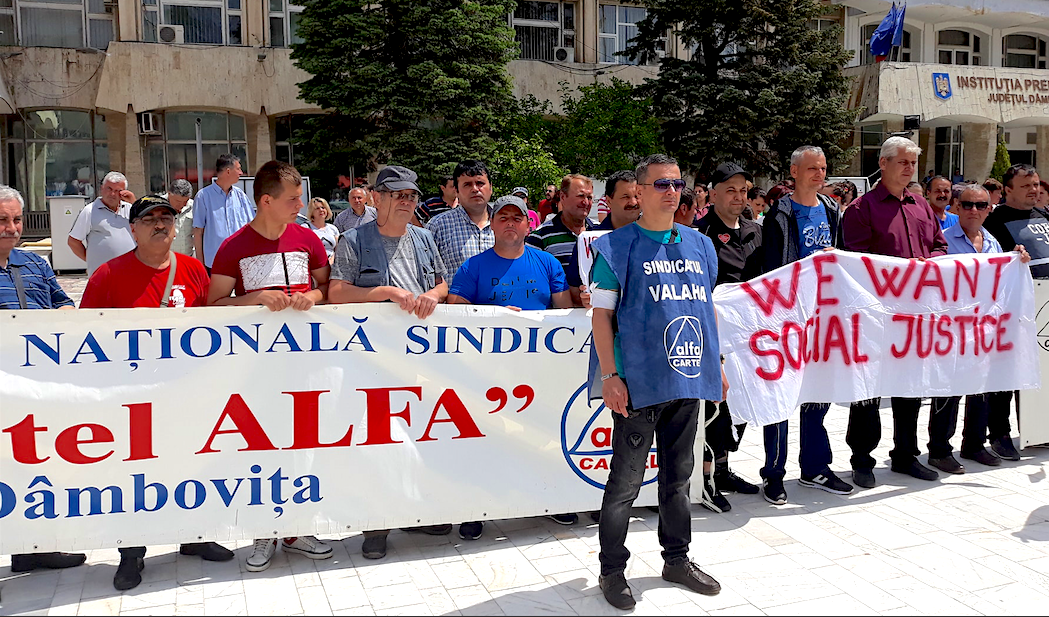The traditional political establishment in Greece buckled under the weight of crippling austerity and a mass people’s movement when the country went to the polls May 6. Now that the voting is over, and attempts to form a government have failed, another election must be held, scheduled for June 17, raising new questions about the way forward for the Greek working class. The crisis deepens as panicking Greeks withdraw their savings from banks on the brink of collapse.
Since the fall of the U.S.-backed military dictatorship that ruled Greece from 1967-1974, two parties, PASOK and New Democracy, have dominated the political scene. However, both parties had their worst showing ever, and combined were only able to muster 32 percent of the vote, down from 77 percent in 2009. Instead, support grew for parties of both the left and the far right. With parliament deadlocked, unable to form a new governing coalition, a new election is pending and there is a distinct possibility of a protracted political crisis and a sharp polarization that provides an opportunity for the working class to decisively assert itself.
Background to the elections
Since the worldwide capitalist economic crisis began in 2007-2008, several countries in the eurozone, which all operate with the common euro currency, have experienced severe debt crises. These national economies are more intimately linked than ever before—which was supposed to be the benefit of the eurozone—so the problems of one immediately threatens the rest.
Germany, the strongest capitalist economy of the eurozone, along with the imperialist U.S., have been working hard to force economic restructuring on the most indebted countries, offering bailouts in exchange for severe cuts to social welfare programs and other austerity measures. They have worked through three main entities: the U.S.-dominated International Monetary Fund, the European Union and the European Central Bank, collectively referred to as the “Troika.” Over the last two years, the Troika has arranged for around €240 billion ($305 billion) in bailout funds for Greece to service its massive debt. In exchange, the Greek ruling class forced through devastating cuts that have led to repeated strikes and militant popular mobilizations.
The Troika has worked hand in hand with the Greek ruling class, which, while claiming to “understand” the opposition of the people, claims that austerity is a difficult but necessary step toward economic revival. The other option, they claim, is complete collapse. It is a story poor and working people across the world are familiar with, including in the United States.
Narrowly winning first place in the elections was New Democracy, a center-right party that was part of the existing government led by Lucas Papademos. An unelected banker, Papademos was appointed to lead the government through its unpopular debt deal. New Democracy campaigned on a platform of supporting the extreme austerity measures imposed by the Troika, and promised only to try to renegotiate some of the more painful terms of the debt deal.
The other pro-austerity party, the misnamed Pan-Hellenic Socialist Movement (PASOK), came in third for the first time in the party’s history. PASOK is led by Evangelos Venizelos, the finance minister under the two previous governments. Venizelos was one of the main architects of the austerity “memorandum” and offered only a pitiful pledge that he would ask the country’s creditors to give them three years, rather than two, to reach absurdly unrealistic economic benchmarks.
Gains on the left
The biggest surprise of the election was the second-place finish of the Coalition of the Radical Left (SYRIZA), with 16.8 percent of the vote. SYRIZA is a collection of small communist tendencies and a larger reformist party that split from the Communist Party of Greece after the fall of the Soviet Union. SYRIZA is led by Alexis Tsipras, a former Communist Youth leader who has received significant international press attention. SYRIZA calls for canceling the bailout deal but keeping Greece inside the eurozone and European Union. This, it says, can be achieved through negotiations with the Troika and through nationalization of the Greek banking sector.
Although there are revolutionary forces within SYRIZA, the dominant line at present is fundamentally social democratic. The “peaceful revolution” they have declared mutes the questions of socialism and working-class power, and raises hopes in a radically reformed capitalism. For example, Tsipras stated in a letter to high-ranking European Union officials, “We must urgently protect the economic and social stability of our country. … It is our duty to re-examine the whole framework of the existing strategy, given that it not only threatens social cohesion and stability in Greece but is a source of instability for the European Union.” While SYRIZA’s leadership wants to reverse austerity, its appeal to “social cohesion and stability” means “stability” under a reformed capitalism.
The second most popular party on the left was the Communist Party of Greece (KKE), which registered a modest increase of 1 percent from their previous election result, ending up with 8.5 percent. This was below the 10-12 percent that most opinion polls predicted. The KKE put forward a platform calling for the socialization of the means of production under a “working class-people’s power” government. Of the left groups in parliament, the Communist Party is the only one to call for Greece to leave the European Union, a bloc of the major imperialist and peripheral capitalist states of Europe.
The KKE has played a major role in the massive fight-back movement waged by the Greek working class and especially in its advocacy for general strikes. It intervenes through mass organizations like the All-Workers Militant Front (PAME) in the labor movement, the Greek Women’s Federation and the Students Struggle Front, among others.
The lowest scoring of the three left parties was Democratic Left, a split to the right from SYRIZA formed in 2010. It only received 6.1 percent of the vote, but its leader Fotis Kouvelis is often ranked as the most popular politician in Greece by opinion polls. Democratic Left rejects the memorandum, but makes sure to balance its criticism of austerity with pledges of absolute loyalty to the eurozone.
Major gains for far right and fascists
Far-right forces experienced major gains in the election as well. The semi-fascist Popular Orthodox Rally suffered as punishment for its participation in the previous government, but new forces emerged. Independent Greeks, a split from New Democracy, came in fourth with 10.6 percent. The party rejects the austerity memorandum on nationalistic grounds and relies on anti-German and anti-Turkish demagogy in place of a specific political program.
The story that has perhaps gotten the most foreign press attention is the entrance of the neo-Nazi Golden Dawn party into parliament with 7 percent of the vote, more than 20 times their score in 2009. Its logo is an ancient Greek symbol similar to a swastika, and until recently Adolf Hitler’s manifesto Mein Kampf was displayed prominently at the party’s headquarters.
Golden Dawn campaigned on a platform of expelling all immigrants from Greece and national chauvinist opposition to the Troika. While some voters were attracted to its racist rhetoric and acts of violence against immigrants, Golden Dawn bought the loyalty of others by operating food banks during a time of growing hunger.
The fascists’ success is a serious threat to the working class and all democratic forces in Greece. While its 7 percent may appear small, it is precisely under these polarized economic and political conditions, when the capitalist class cannot achieve stable rule through democratic means, that fascism has historically grown and taken power.
The main bourgeois parties cynically used the threat of Golden Dawn to present the false dilemma of austerity or a descent into fascism. But in reality, these mainstream parties’ promotion of anti-immigrant racism gave Golden Dawn political space to grow. Moreover, if it appeared that the working class could potentially become the ruling power in Greece, the bourgeoisie could accept, if not turn to, a fascist coup.
That the Greek ruling class has operated under fascist military rule before makes such a scenario all the more plausible.
It is up to the revolutionary left and the working class to develop a program and plan of action to smash fascism politically and in the streets.
A ‘government of the left’?
A central component of the SYRIZA campaign was its appeal for the formation of a “government of the left,” encompassing all the left forces opposed to the Troika. The formation of such a government was impossible given the election results and highly implausible given Greece’s undemocratic electoral laws governing coalitions. But SYRIZA’s call for a government of the left clearly resonated with much of the working class and contributed to its success. If SYRIZA were to emerge in first place in the June election, as presently projected, the left could achieve such a majority.
SYRIZA leader Tsipras and other social-democratic proponents of a government of the left argue that it would be able to cancel the memorandum, reverse the wave of austerity measures, potentially nationalize the banks and rebuild the Greek economy in a way that strengthens the working class. SYRIZA makes the case that the European ruling class would never let Greece default and exit the eurozone because of the economic havoc this would create in other heavily indebted states like Spain and Italy. In short, Tsipras pledges to reverse the balance of forces inside the eurozone; instead of the Troika forcing Greece into deeper austerity, Greece would leverage its power against the Troika.
While the Troika obviously wants to avoid a complete Greek default (lenders have already accepted a 53.5 percent write-down on the debt), they have had the last two years to prepare for this eventuality. The centerpiece of the European ruling class’ preparations is the European Financial Stability Facility, a $976 billion bailout fund, meant to act as a “firewall” to counter the immediate effects of a Greek bankruptcy. With this in place, there is a small but growing tendency of capitalist financiers who believe that if Greece were expelled, the eurozone would “end up stronger once the dust had settled.”
Tsipras insists that Greece can out-negotiate the international capitalists, rather than calling for the socialist reorganization of society. He raises unrealistic expectations among the oppressed in electoral and bourgeois political gamesmanship, rather than raising the possibility of a new class power.
Why revolution is necessary
By contrast, the KKE has called the “government of the left” idea a false hope that will lead to disillusionment. The KKE rejects possible participation in a left government, insisting that such a government will leave the capitalist state and the for-profit economic system intact, keep Greece bound to the imperialist institutions of the EU and NATO, and thus cannot resolve the central contradictions at the heart of the political crisis.
More broadly, they explain that the social-democratic program, which arose in the post-war period of capitalist expansion, cannot be achieved in the context of protracted capitalist crisis and neoliberal financial control. They have called the SYRIZA plan opportunist, betraying the long-term interests and political clarity of the working class in exchange for short-term gains for particular leftist parties.
This raises the age-old but still pivotal question of reform and revolution: Does the working class have the capacity to come to power, and how so? Can the capitalist system be reformed to resolve the exploitation at its center? How far can revolutionary organizations go at this time?
Several organizations in Greece—including the KKE—have made the case that the political crisis of the bourgeois class has matured to the point of a revolutionary situation, opening the possibility for the transfer of power to the working class in alliance with middle-class strata.
Revolutionaries, of course, fight for reforms that improve the conditions of the working class and facilitate the political struggle against the ruling class. But a central responsibility is to assess whether the conditions for revolution are approaching, to hasten their development and prepare for such an opportunity.
The basic contradiction in capitalist society is that the productive process is socialized, involving millions of workers, while ownership is private, concentrated in a tiny ruling class. The capitalists control the means of production and distribution, as well as countless financial mechanisms, to squeeze profits out of workers and maintain their political and economic power. The capitalist state (the police, military and courts) allows them to safeguard this system with force, while the government provides for its administration.
A change in administration, like the ascent of a government of the left, will not alter the fundamental underlying character of the state. This can only be achieved by the overthrow of the capitalist state and its replacement by a worker’s state based on independent organs of working-class power—a socialist revolution.
Elections and the revolutionary process
Some communist tendencies support the formation of a government of the left for this reason—not because it would solve the crisis, but because it would further polarize the country and hasten the development of a revolutionary situation.
There can be no doubt that the formation of a SYRIZA-KKE-Democratic Left coalition would cause considerable panic among the Greek and European ruling class, and new bouts of intense class struggle.
History has shown that revolutions can take many paths and tactical turns. In Venezuela, the election of President Hugo Chávez, a socialist presiding over a fundamentally capitalist state, undoubtedly gave a boost to the class struggle and the regroupment of revolutionary forces in the country.
In Nepal, Maoists waged a triumphant revolutionary war against the feudal king that resulted in a negotiated peace and the Maoists’ subsequent election to lead a bourgeois government. Their decision to dissolve their armed forces remains the subject of considerable debate among revolutionaries. Neither country, despite heroic advances, has established socialism.
But for a Greek left government to be a vehicle of revolution, instead of demobilization, demoralization and disillusionment, a left-wing government would need to have clear programmatic unity around the socialization of the means of production, centralized planning, workers’ political power, and so on. It would need to organize the people to take on the police and the military that their own left-unity government would be associated with and nominally leading.
Otherwise, when a revolutionary situation emerged it would only disorient the movement and contribute to the persistence of reformist illusions.
SYRIZA has been silent or worse on these critical questions. In the run-up to the elections, Tsipras said: “A government of the left is in need of industrialists and investors. It needs a healthy business climate.” In other words, his version of a government of the left would not challenge the capitalists’ right to exploit labor.
The capitalist establishment has reciprocated, and the Federation of Hellenic Enterprises (SEV), the Greek equivalent of the U.S. Chamber of Commerce, has called for the formation of a national unity government including SYRIZA.
Tsipras called the election results a “peaceful revolution,” a slogan that misleadingly suggests the electoral realm, rather than continued mass struggle, can provide a way out of the crisis for working people.
The revolutionary crisis and dual power
While support for SYRIZA is likely to increase in the coming election, it is doubtful the new election will produce a clear winner or workable coalition. In the face of the increased likelihood of exiting the eurozone, which would deepen the economic and political crisis, the class struggle will intensify.
With the bourgeoisie so thoroughly discredited, and the Greek masses so clearly calling for an alternative way, the revolutionary left has an opportunity to offer a program that provides not only short-term relief, but also a longer-term vision of a new economic and political system. The question is how to mobilize the working class and broadly unite the revolutionary forces in a struggle to achieve this.
Historically, a key phase in any revolutionary crisis is that of dual power. By organizing what is essentially a second, rival state built on organs of mass struggle, revolutionaries can show concretely what working-class or people’s power looks like and offers. In the Russian Revolution, this took the form of councils of workers and soldiers (called soviets). In China, the Red Army itself functioned as a government in the areas that it liberated. Revolutionaries have also convened constituent assemblies—to rewrite the constitution—as a way to articulate, and establish the legitimacy of, a new political vision.
Clearly, there are millions in Greece who are still holding out hope that the existing capitalist government and state, perhaps with left-wing leadership, can deliver the goods. To this end, a sophisticated political struggle, backed by a concrete plan of action, must be waged against Tsipras and the social-democratic fantasies he projects. In his “April Theses,” designed to guide the Bolsheviks through Russia’s revolutionary crisis, Lenin called for “patient, systematic, and persistent explanation … especially adapted to the practical needs of the masses.”
Can the struggle in the streets break the deadlock in parliament? Will alternatives to bourgeois state power be built? The Greek working class has found itself on the frontline of the international struggle against capitalism, and the answers to these questions will resonate around the world.
For revolutionaries in the United States, our main role is not to endorse this or that organization and its tactics from afar. Our chief responsibilities are 1) to explain that the Greek crisis is a result of the contradictions of capitalism, not reckless social spending, 2) to defend the unfolding Greek revolution, especially as it could escalate and be slanderously attacked in the imperialist media and even militarily assaulted by U.S.-NATO forces, and 3) to study and learn from the complex revolutionary process that our brothers and sisters are trying to navigate.
While their process is far more advanced than our own, their struggle is ours—and we have much to learn from it.





